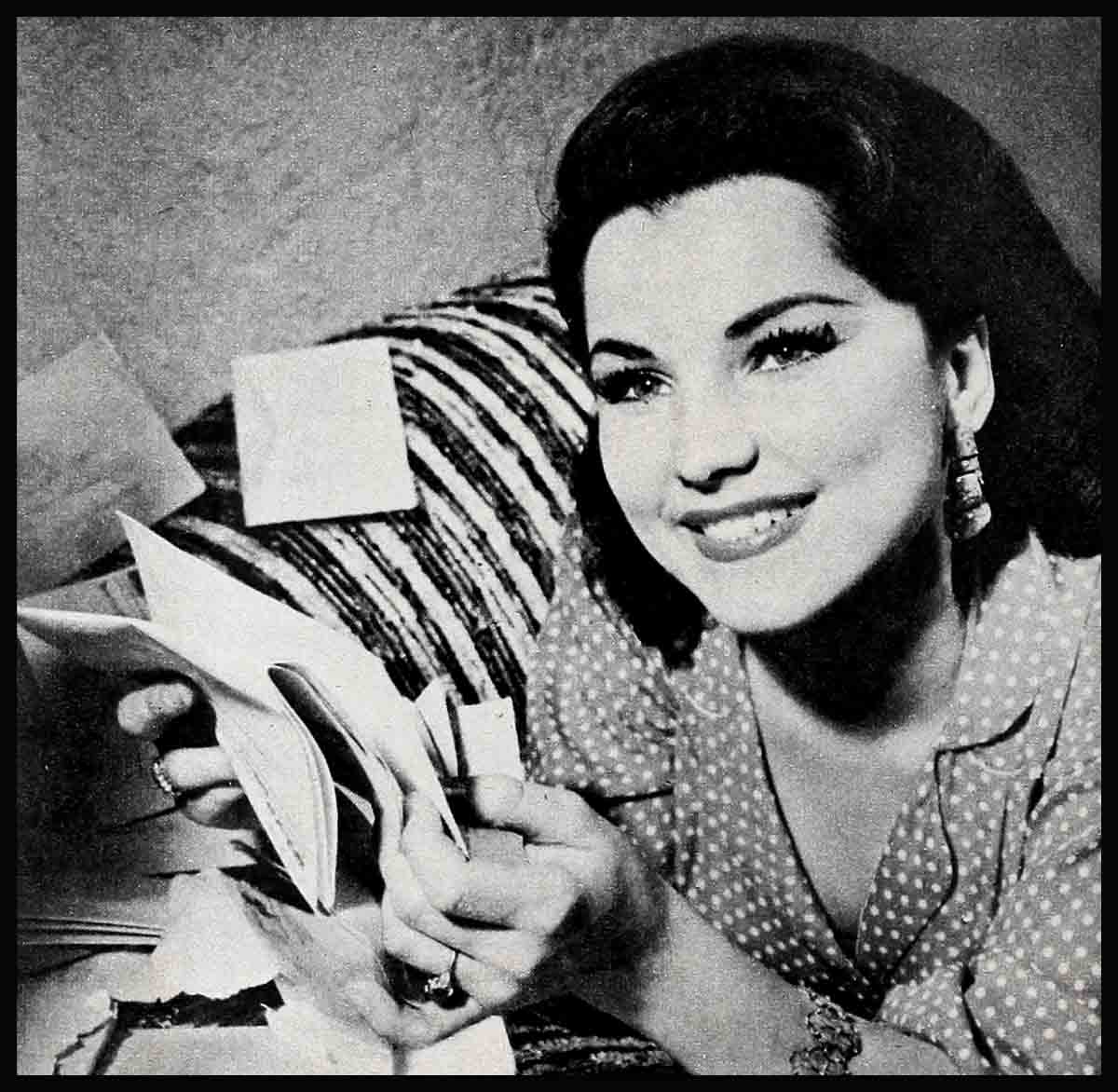
Debra Paget And Her Answer Men
Lately Debra Paget’s fan mail has been filled with reports of the problems of young people; they feel that some of the younger crowd she knows around Hollywood may have had similar difficulties, so Debra decided to collect a panel of nice Joe’s and ask them to try and solve a few of the dilemmas.
Debra’s panelists are Bob Arthur, Richard Allan, Touch Conners, Craig Hill, Robert Horton and Dewey Martin.
Set down here is the transcript of their meeting over a cold coke and under a hot spotlight on Stage Seven at Twentieth. Debra hopes their conversation is of some help to those who have written to her.
To begin with what appears to be the Number One sleep-disturber of our times, here’s a letter from a girl in Philadelphia:
Dear Debra: I am sixteen and a junior in high; my fellow is seventeen and a senior. Bob figures that he is going to be drafted soon, so he has been goofing off at school. He’s going to have to make up several subjects so, instead of graduating in June, he won’t make it until next February. He thinks that he might as well enlist now and have it over. I think he should finish school and perhaps go on to college, waiting until his draft board calls. What do you think?
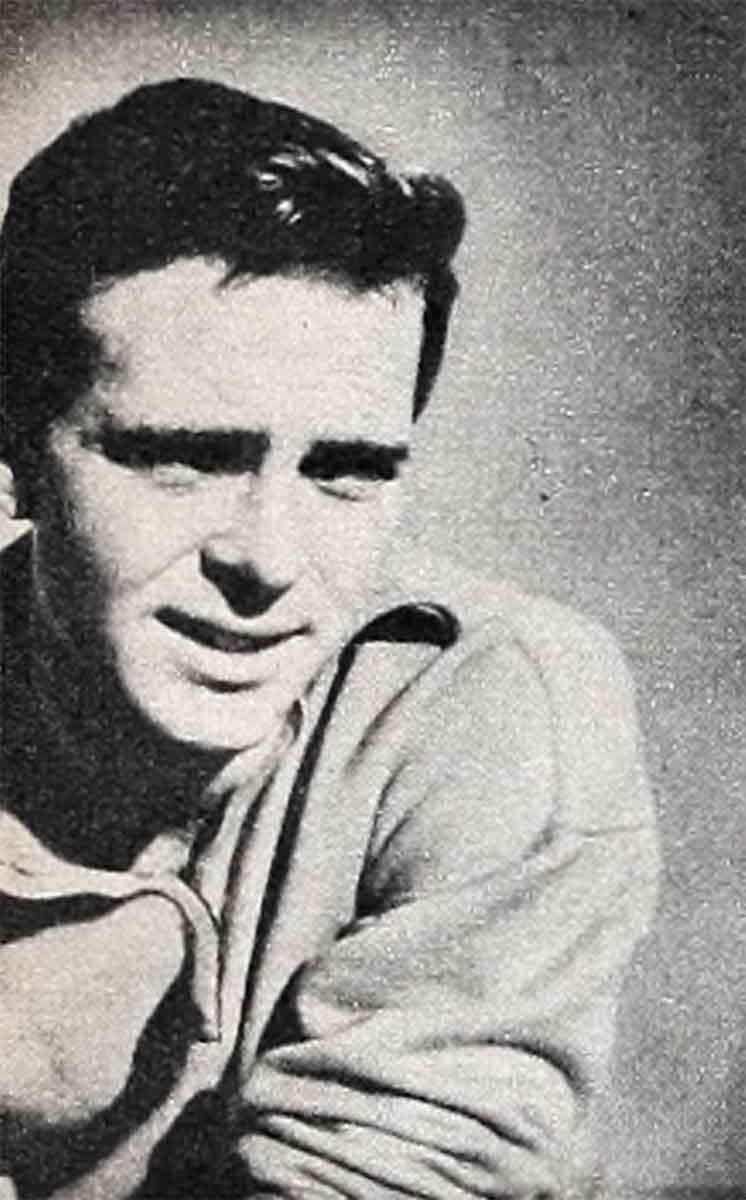
DEBRA: Dewey Martin, you broke out of school without graduating, didn’t you? So what do you say?
DEWEY MARTIN: I didn’t graduate, but I did finish my high-school work while I was in service. I got impatient because I’d been hoping for an appointment to the Naval Academy, and I’d been working hard to prepare myself. Then my sponsor died before the appointment came through, and I flaked out. Things seemed in a hopeless mess, so I signed up with the Navy, went to flight school and wound up flying fighter planes in the Pacific.
I think this problem of joining or waiting to be drafted is an individual thing. But I don’t think how a fellow gets into service is what matters. As things exist in the world today, every able-bodied man is going to serve his stretch in uniform; so he might as well make up his mind to be the best darned sailor, soldier, marine or coastguardman in his outfit.
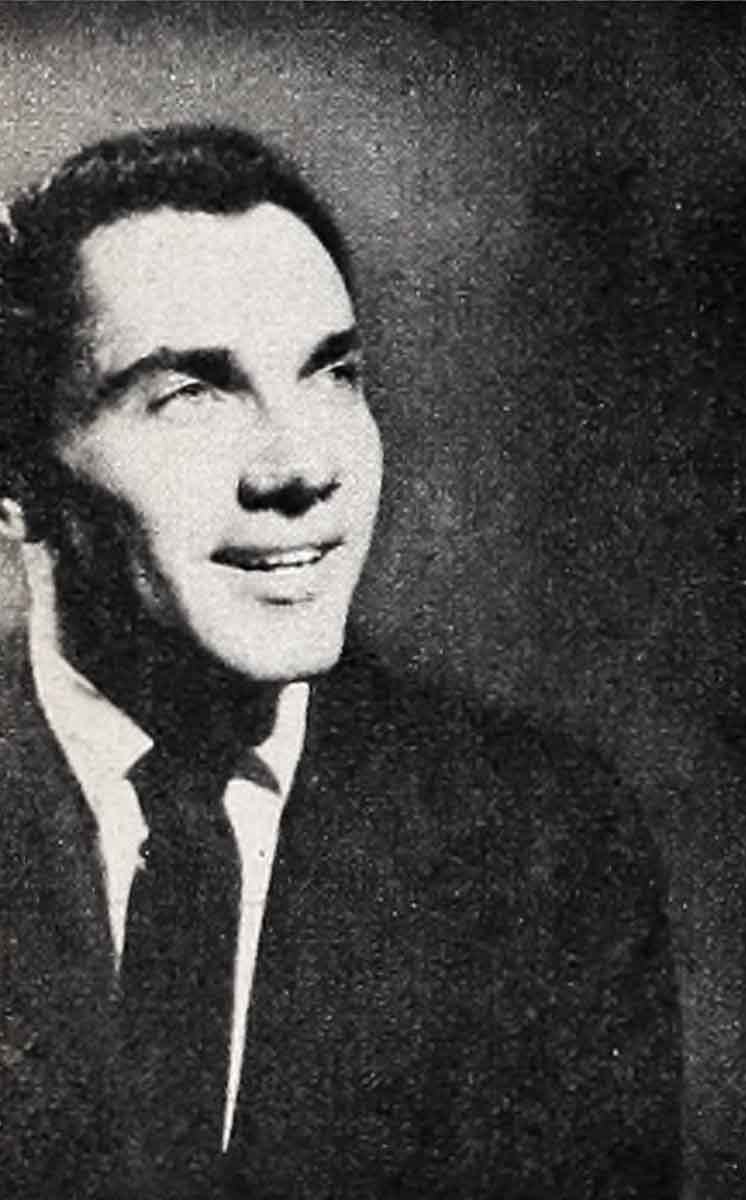
RICHARD ALLAN: I agree with you, Dewey, and I think a guy should take along—his sense of humor.
I got the greetings, put in for the Air Corps and got my basic training on the East coast, then was shipped 3,000 miles across country to the Portland, Oregon airbase. Our detachment lined up on the landing strip. Boy, were we filled with that stuff you see in the wild blue yonder! And then a top sergeant said, “You have been consigned to the Quartermaster’s Laundry Battalion.”
Man, I fought the cleanest war on record; washed officers’ drawers from North Africa to Italy. But the laundry business left me time to study. I took singing lessons from a French vocal teacher who couldn’t talk English, so I had to learn to talk French. While I was in Italy, I studied with the Director of Music at the University of Pisa. If I’d just been a civilian, I’d never have had those breaks.
I imagine the reason this high-school senior is goofing off is because he thinks he is going to have to mark time during service, and that he’ll just be wasting his life. That’s a foolish notion!
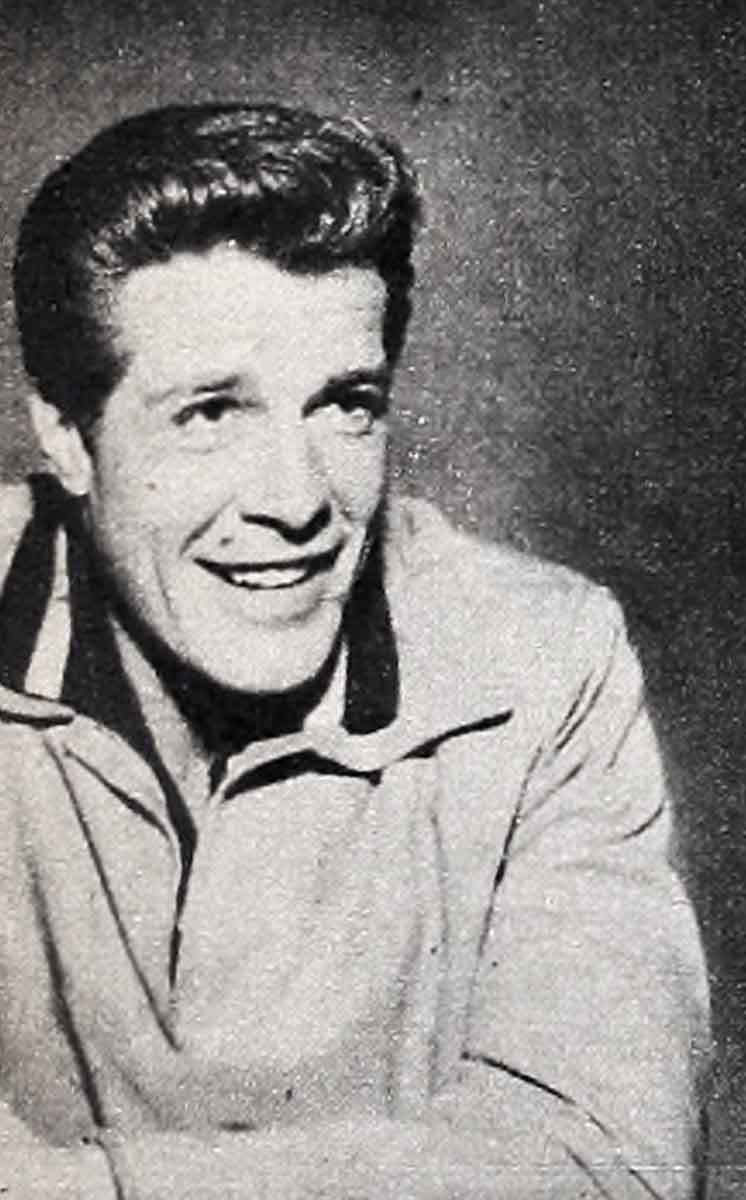
CRAIC HILL: I think almost every guy goes around in circles for awhile, trying to find out what he really likes. Look at me. I was in the Navy a year, and then I got an appointment to Annapolis because I thought I wanted to make the Navy a career. After my first year at the Naval Academy I decided brass buttons weren’t for me. I knew what I really wanted was to be an actor.
I think this girl’s boy friend should wait to be drafted. But I think he should find out what the various services offer so that he can make good use of his time when he does go in.
TOUCN CONNERS: I was drafted, but if I had to do it over again I think I’d enlist. You see, I’m darned grate ful to the Air Corps because it gave me a chance to find out what I wanted to do. It happened this way: A buddy of mine, Mahlon Rassmussen, worked up a song and dance routine and I joined him as a gag. We used to perform for service clubs and we were well enough received for me to decide to take a crack at show business.
When I was discharged I went through UCLA under the GI. bill—another big break. Nowadays, military service makes it possible for a man eventually to get a good education.
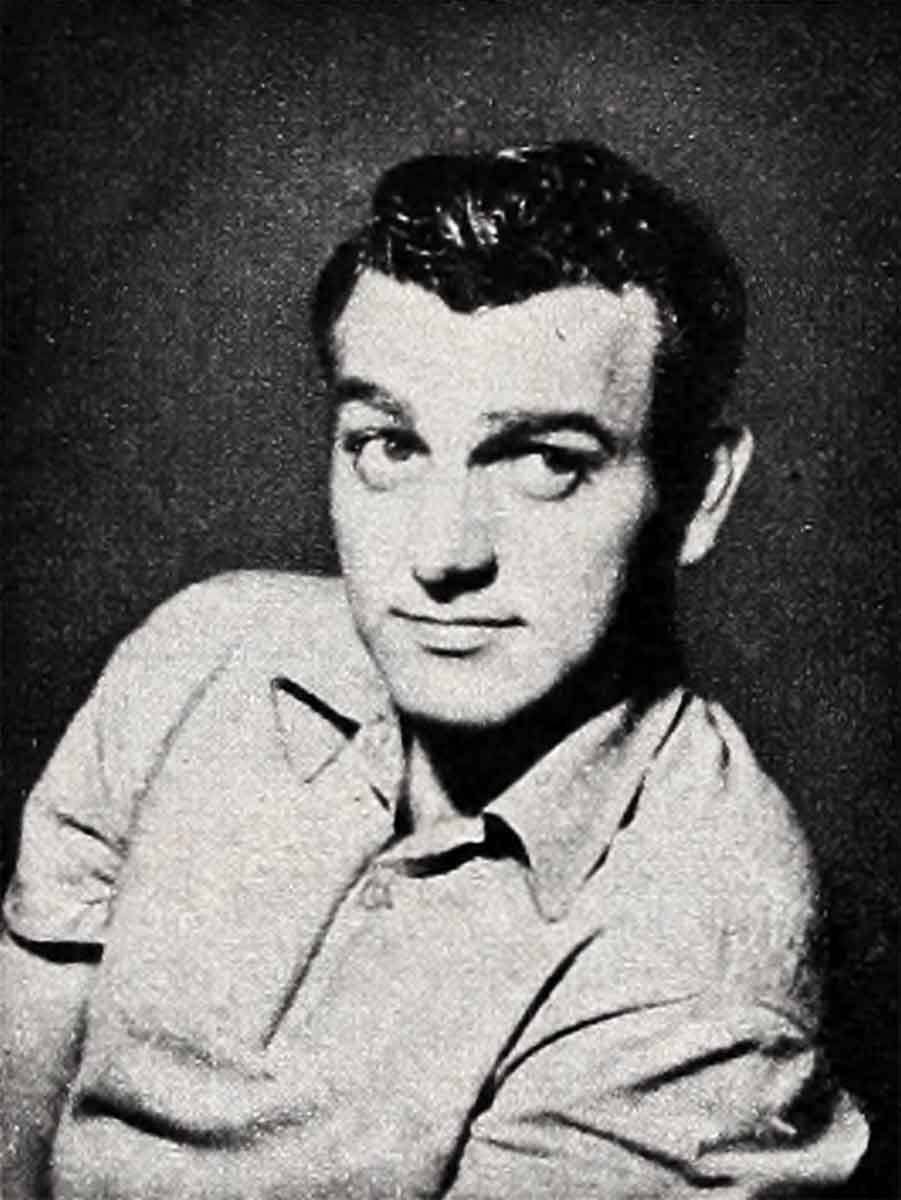
ROBERT HORTON: I enlisted in the Coast Guard and when I was discharged I went to the University of Miami under the G.I. bill. I agree with the rest of you that the only intelligent thing to do is to make the most of military service. What’s wrong with a guy who lives in this country, benefits by its freedom, and then yells his head off because he has to invest two to four years in maintaining the only way of life worth living?
BOB ARTHUR: I agree with what you’ve all been saying, in general, but we’re answering a specific guy with a specific problem. I think he should enlist right now. He’s just champing at the bit till he gets into service—and I think the sooner he does get in, the happier he’ll be.

DEBRA: Thank you, gentlemen. And now we have a letter from a girl in Chicago who can use masculine advice:
Dear Debra: I am eighteen and attend a very large high school. Although my telephone isn’t exactly rusting from lack of use, I haven’t been really excited by any of the boys I’ve dated so far. Maybe it’s a case of the grass being greener on the other side of the fence, but I have caught a glimpse of a boy who could make me read “fair and warmer.” We don’t have any classes together; he doesn’t live in my neighborhood, and I haven’t been able to find anyone who could introduce us. How can I meet him?
DEBRA: How about it, Dick?
RICHARD ALLAN: You’re drafting me, remember. I didn’t volunteer. Well, this boy must have noticed the girl or she wouldn’t be interested in him.
(Sounds of laughter)
Come on, guys. In cases like this, if I still remember what went on in high school, the boy has given the girl the eye, and the girl has given it right back. Since the girl has the right, according to social usage, to encourage a friendship and to speak first, why couldn’t she smile the next time she sees this boy? Next day or so she could say “Hi.”
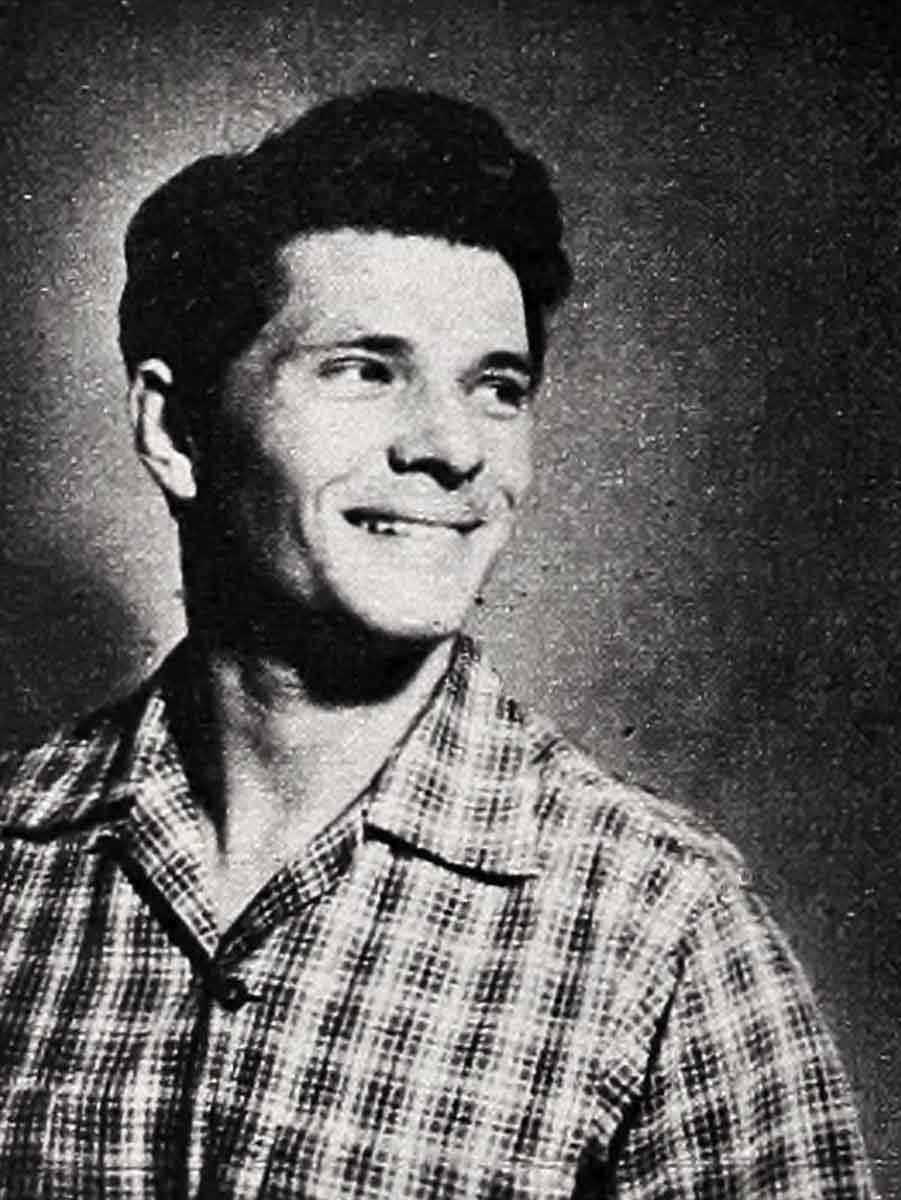
CRAIG HILL: There’s an easier way than that. If both of them drive cars, she can get behind him and bump his car just enough to lock bumpers. By the time the cars are separated, they should know whether they hate each other or not.
ROBERT HORTON: She’d better be darned attractive if she tries that. If he’s just finished a new paint job he’ll give her the Typhoid Mary treatment.
DEWEY MARTIN: I want to know what became of the old-fashioned drop-the-handkerchief gag? If that’s now cornball, she could drop her algebra book. The guy would have to pick it up and the girl could invite him to a turkey dinner at her house to express her gratitude.
TOUCH CONNERS: I think it’s fine for a girl to go after a boy who appeals to her, but I think she has to be subtle. Why couldn’t she find out what the guy does in his spare time? Tennis? She could learn and then “accidentally” show up on the next court. If he swims, she could frequent the same beach.
Of course a girl should know something about a sport before she tries it in the boy’s presence, but once they have made friends it wouldn’t do any harm for her to ask his help in improving her technique.
BOB ARTHUR: She could always challenge him to a duel. In that case he would have the choice of weapons. . . .
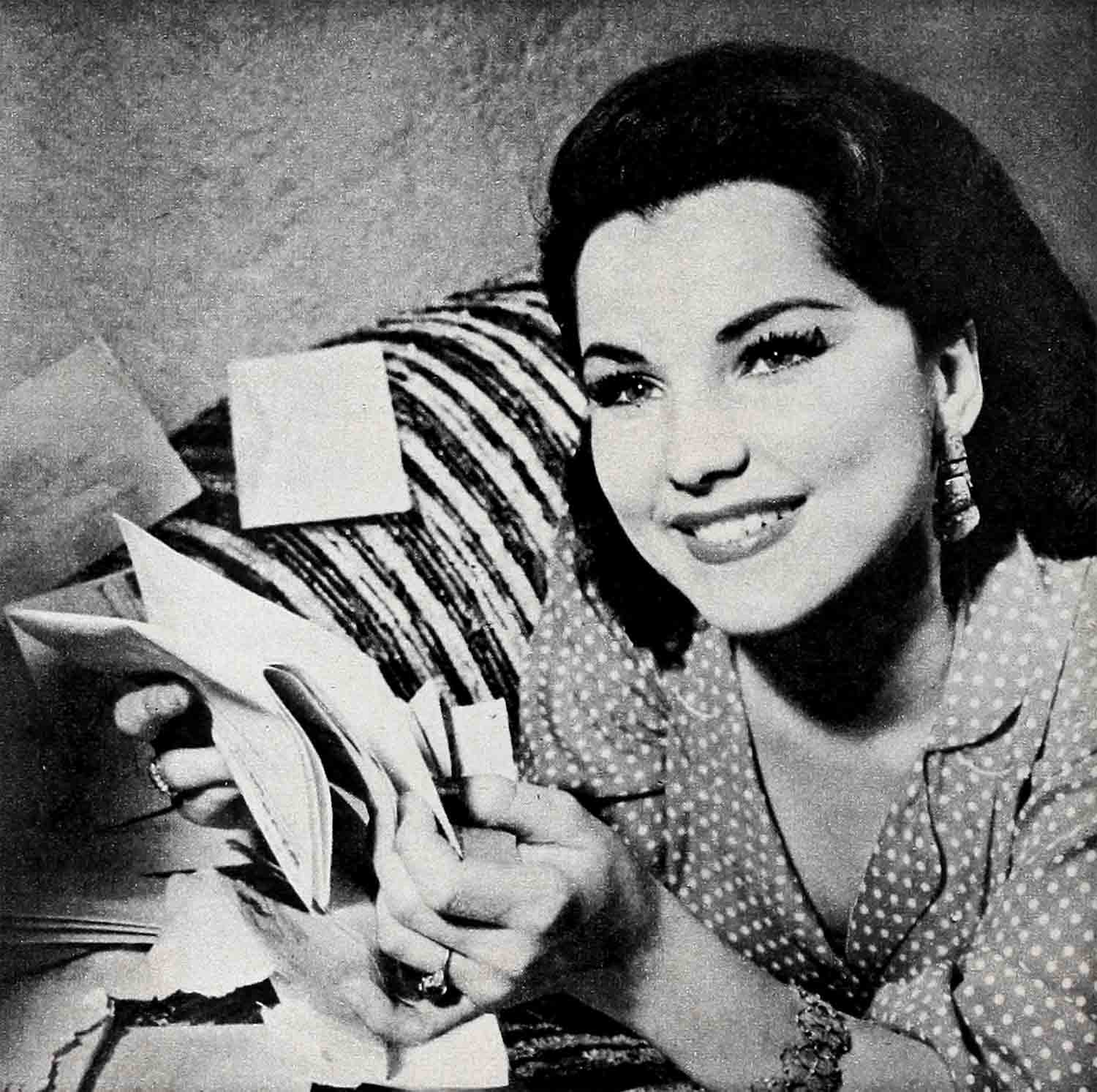
DEBRA: Now boys! Back to business. Here’s a problem that seems very much a part of our generation, but my mother says the argument is as old as Adam and Eve. This comes from Dallas:
Dear Debra: My sweetheart and I are deeply in love and want to get married, but his family is opposed. They feel that we are much too young to know our own hearts, although we are both seventeen. I have been dating since I was fourteen and I have never felt about any other boy as I feel toward Cary. We will both graduate from high school this year. I have taken a secretarial course, so I will get a job, and Cary will go into the construction business with his father. If he goes into service later, he’ll always have this business to come back to. I think we could manage, but so many people seem to be opposed to early marriage. Don’t you think young marriages have as good a chance as any?
DEBRA: Well, Touch and Dewey you’re the only married ones, so what do you say?
TOUCH CONNERS: Hmmm—how can | be honest and diplomatic at the same time?
I was married while I was still in college, but I don’t think ours was a standard case. I had already been through three years of military service, and I was certainly well over seventeen. My wife, Mary Lou Willey, was out of her teens, too. I’m afraid that the average seventeen-year-old girl is full of romance and pretty dreams. She doesn’t realize that—even if she helps add to the income by working—she’ll still have to cook, wash the dishes, take the family washing to the laundermat, scrub the floors, vacuum the carpets, dust, get along with in-laws and stretch the family income. Marriage is a full-time job. A girl has to be fairly mature mentally, and emotionally before she tackles it.
DEWEY MARTIN: I’ll have to ride along with Touch. I’ve been married only two years, but I sure didn’t ride a kiddie car to the altar.
Touch, you’ve covered the wife’s responsibilities, so I guess I’ll talk about what a husband needs to face. First, he should have a profession or at least feel secure in a job that he has chosen, in preference to one he has been handed . . . maybe with some strings attached. Sure this boy can go into business with his dad, but suppose he finds out eventually that he can’t stand the construction business and wants to be a doctor or a lawyer. That would mean at least seven years of college—and probably very little help from anybody. A fellow is better off if he doesn’t get married until he knows how he’s going to earn his living.
CRAIG HILL: At seventeen I had been in love five times. By now, I suppose I have been in love ten times. I count on being in love at least ten times more before I settle down.
RICHARD ALLAN: I don’t think early marriage is good for a man. Take the picture business, for instance. I’m just getting a start and I’m working so hard that I don’t even have time for dates, to say nothing of marriage. After all, marriage is a career, too, and it deserves to have time devoted to it.
The average young fellow who is hacking out a niche for himself needs to devote all his energies to his career. No wife would put up with my being away from home from eight every morning until ten, or twelve every night.
ROBERT HORTON: I go along with the majority. And, as you know, I’ve been giving the matter a lot of personal thought lately. I think getting married too young is a mistake. Kids need a few years of seasoning, of settling, of acquiring a real philosophy before they can build a successful marriage partnership.
BOB ARTHUR: It turns out that I’m the dissenter. I believe in early marriage. You know what the Chinese say: “Every man should marry young; if the marriage is happy, he has the greatest treasure in life. If the marriage is unhappy, it improves the man’s character.”
Even if an early marriage ends in divorce, I think that something worthwhile has been accomplished. Every one can remember falling in love in high school; it’s a wonderful experience. Personally, I don’t think there can be, ever again, that world-well-lost, total spirit of devotion that people feel in their teens.
DEBRA: Majority rules—and the majority is definitely in favor of having our seventeen-year-olds hold off for a while. And now for another teen-age problem. This is from a girl in Tennessee:
Dear Debra: We have just moved to this city and in the fall I’m to enroll at a new high school. I’ve always read about school days being the happiest in a girl’s life, but so far I can’t say much for mine. I’d like to be really popular during my last two years in school. Can you give me some hints?
DEBRA: Maybe the easiest way to answer this would be for each-of you boys to tell something about the most popular girl in school when you were students.
RICHARD ALLAN: My answer is off-beat . . . our belle of the 11-B wasn’t the usual type. First of all, she was taller than the average girl in school and she wore bands on her teeth. She had broad hips and she wasn’t the best dancer in the world by a long shot. But she was one of those lucky people who love every moment of life. No matter what she was doing, she got a kick out of it. She had a good word to say for everyone; I never heard her utter a catty sentence. She was active in school—did a lot of different things like working on decorating committees, writing for the school paper, singing in the glee club. You know: the kind of girl who puts the world on roller skates. The only pretty thing about her was a head of thick, blonde hair, but she had more dates than any other girl in our class.
DEWEY MARTIN: Personally, I think the importance of “popularity” has been exaggerated. Actually, it isn’t possible for anyone to be as popular as some movies make people seem.
I think the average girl wants to be popular with a small group, wants to be friendly with a much larger group, wants to be the special interest of one guy. She can manage this, if she’ll choose her friends because she has something in common with them. A girl will be unhappy if she tries to choose her friends for their prestige instead of their compatibility.
BOB ARTHUR: My recipe for popularity is like that old recipe for dodo stew. First catch a dodo. The most popular girl in our school lived in Hawaii when she was fourteen and she had learned the hula. She used to dance for all our assemblies and you couldn’t get her on the telephone for two weeks after each performance.
TOUCH CONNERS: Maybe you’ll think my suggestion is far-fetched, but I believe a girl should learn to cook. It never hurts a girl’s standing with her gang if she can say, “Come over to the house after the game and I’ll build some waffles and hot chocolate.” I think she should be able to do this while her mother and father are reading the evening paper in the other room, and I think she should organize a K.P. detail to clean up after the snack.
This shows that someday she is going to make some man a darned good wife.
ROBERT HORTON: I think Touch has hinted at one of the most important facts in popularity, real popularity that is: respect. Lots of girls think that they can be popular by being easy.
The only popularity worth having is that combined with admiration, not with secret shame.
CRAIG HILL: I like Touch’s suggestion that a girl be a real girl. After all, a fellow usually picks up the check on a date, showing that eventually he’s going to be a solvent citizen. A girl ought to show, once in awhile, that she’s in training to become a household manager.
Another thing: lots of girls seem to think that the only way they can prove they’re having a good time is by getting loud. This is like pouring on a whole bottle of perfume. With sound and fragrance, a little goes a long way.
DEBRA: Boy’s you’ve been great. Thanks a lot. Anybody want to come up to my house for waffles and coffee?
(Debra’s most recent picture is Twentieth’s “Stars and Stripes Forever.” Bob Arthur is in Warners’ “The System” and M-G-M’s “Take the High Ground”; Richard Allan, in Twentieth’s “Niagara”; Touch Conners, in “Forty-Nine Men” and “Sky Commando,” both for Columbia; and Robert Horton in M-G-M’s “Code Two,” “Bright Road” and “Arena.”)
It is a quote. PHOTOPLAY MAGAZINE JULY 1953




